Filter News
Area of Research
News Topics
- (-) Decarbonization (21)
- (-) Sustainable Energy (25)
- 3-D Printing/Advanced Manufacturing (12)
- Advanced Reactors (4)
- Artificial Intelligence (14)
- Big Data (9)
- Bioenergy (19)
- Biology (28)
- Biomedical (6)
- Biotechnology (3)
- Buildings (16)
- Chemical Sciences (15)
- Clean Water (5)
- Climate Change (26)
- Composites (3)
- Computer Science (20)
- Coronavirus (9)
- Critical Materials (4)
- Cybersecurity (7)
- Element Discovery (1)
- Energy Storage (25)
- Environment (36)
- Exascale Computing (8)
- Fossil Energy (1)
- Frontier (10)
- Fusion (7)
- Grid (13)
- High-Performance Computing (16)
- Hydropower (8)
- Irradiation (1)
- Isotopes (4)
- ITER (2)
- Machine Learning (10)
- Materials (37)
- Materials Science (16)
- Mercury (1)
- Microscopy (13)
- Nanotechnology (9)
- National Security (17)
- Net Zero (2)
- Neutron Science (12)
- Nuclear Energy (10)
- Partnerships (8)
- Physics (10)
- Polymers (5)
- Quantum Computing (7)
- Quantum Science (9)
- Security (4)
- Simulation (6)
- Space Exploration (4)
- Summit (7)
- Transformational Challenge Reactor (2)
- Transportation (10)
Media Contacts
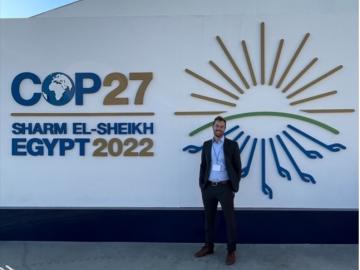
David McCollum, a senior scientist at the ORNL and lead for the lab’s contributions to the Net Zero World Initiative, was one of more than 35,000 attendees in Egypt at the November 2022 Sharm El-Sheikh United Nations Framework Convention on Climate Change, or UNFCCC, Conference of the Parties, also known as COP27.
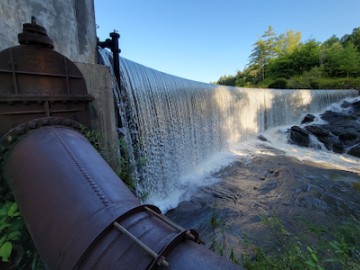
Researchers at Oak Ridge National Laboratory have identified a key need for future hydropower innovations – full-scale testing – to better inform developers and operators before making major investments.
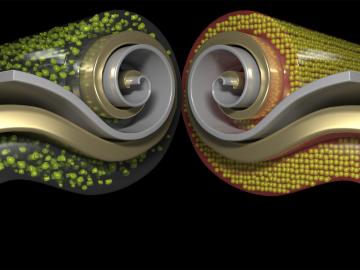
Researchers at ORNL have developed a new method for producing a key component of lithium-ion batteries. The result is a more affordable battery from a faster, less wasteful process that uses less toxic material.

Oak Ridge National Laboratory scientists designed a recyclable polymer for carbon-fiber composites to enable circular manufacturing of parts that boost energy efficiency in automotive, wind power and aerospace applications.
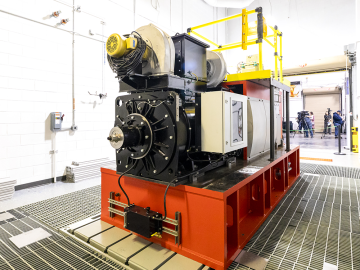
As the United States shifts away from fossil-fuel-burning cars and trucks, scientists at the Department of Energy’s Oak Ridge and Argonne national laboratories are exploring options for another form of transportation: trains. The research focuses on zero-carbon hydrogen and other low-carbon fuels as viable alternatives to diesel for the rail industry.
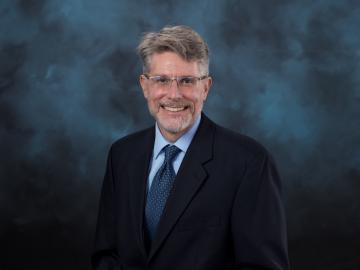
ORNL appointed Peter Thornton as director of its Climate Change Science Institute, or CCSI, effective November 1, 2022.
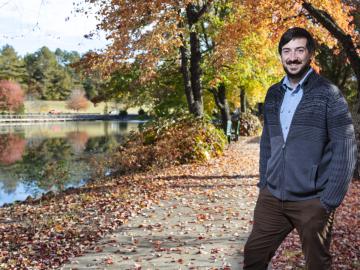
Matthew Craig grew up eagerly exploring the forest patches and knee-high waterfalls just beyond his backyard in central Illinois’ corn belt. Today, that natural curiosity and the expertise he’s cultivated in biogeochemistry and ecology are focused on how carbon cycles in and out of soils, a process that can have tremendous impact on the Earth’s climate.
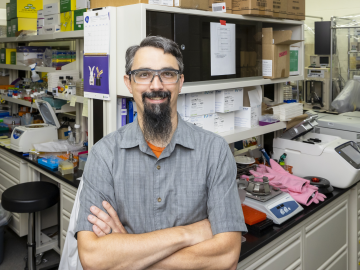
Scientists working on a solution for plastic waste have developed a two-step chemical and biological process to break down and upcycle mixed plastics into valuable bioproducts.
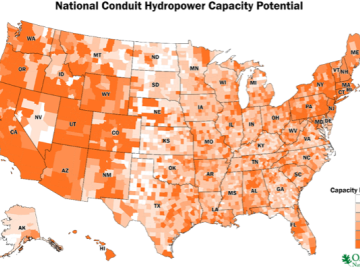
Millions of miles of pipelines and conduits across the United States make up an intricate network of waterways used for municipal, agricultural and industrial purposes.
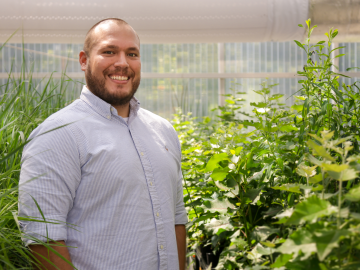
Tomás Rush began studying the mysteries of fungi in fifth grade and spent his college intern days tromping through forests, swamps and agricultural lands searching for signs of fungal plant pathogens causing disease on host plants.




